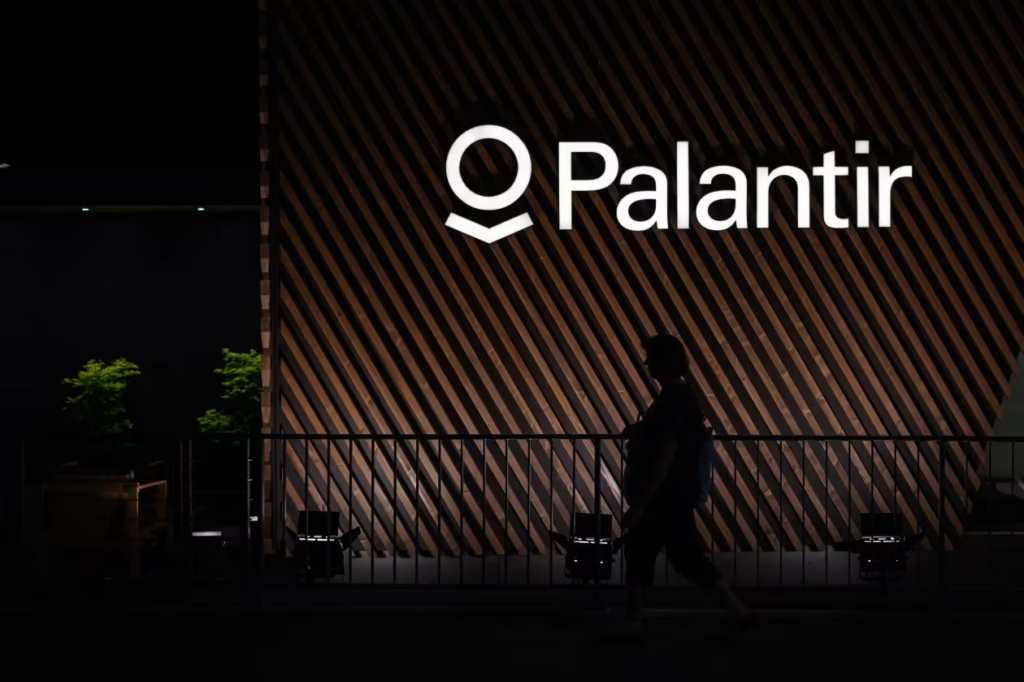Palantir has done a great job developing AI solutions for both commercial and government customers.
The stock of Palantir Technologies Inc. has risen an astounding 110% so far this year. Artificial intelligence products that successfully add value for clients are the straightforward yet challenging to duplicate cause of that success.
“Many enterprises still struggle to realize a meaningful value-add from the AI revolution, nearly three years after the breakthrough of LLMs” (large language models). Mariana Perez Mora, an analyst at Bank of America, wrote in a letter on Monday that Palantir customers are still an exception.
There isn’t much solid evidence of AI monetization elsewhere that investors are searching for. According to a new research published last month by MIT’s NANDA initiative, 95% of generative-AI pilots have not produced meaningful results. According to Torsten Sløk, chief economist at Apollo Global Management, large corporations have been adopting less techniques like virtual agents and machine learning in recent weeks.
As IT expenditures have decreased and worries about “AI eating software” are widespread, Palantir (PLTR) has been a shining example in a difficult software market. According to Mora, Palantir’s value-based business strategy is “less macro-sensitive and continue[s] to provide business opportunities in challenging times” since it bases pricing for solutions on the added value of each individual contract rather than billing clients for each software seat.
According to Bank of America, Palantir’s stock outperformance will be sustained by its competitive edge in AI solutions. With a price target of $180, Mora has rated the shares as a buy.
According to Mora, Palantir is the “incumbent” choice for upcoming contracts because of its track record of government cooperation. StateChat, the AI chatbot used by the U.S. State Department, is now supported by Palantir’s Foundry technology.
The State Department has awarded the business a contract to support its Orion program. The State Department claims that only Palantir’s products met the criteria for an AI and machine-learning solution among the 42 program request respondents. The firm emphasized Foundry’s compatibility with other agencies’ models and its low-code features, which facilitate integration across a broad user base.
Mora underlined that this breakthrough positions Palantir to win more government contracts in the future.
At the company’s AIPCon event last week, Palantir also demonstrated a number of commercial applications of its Artificial Intelligence Platform (AIP).
Palantir’s Foundry solution was used by American Airline Group Inc. (AAL) to develop route modifications, resulting in realized efficiencies that saved tens of millions of dollars. Palantir’s technology aided scientists in calculating dosages for human deployment and expedited the drug-discovery process by helping to organize and combine the enormous amounts of clinical and research data held by pharmaceutical company Novartis AG (NVS). Additionally, Palantir’s AIP has been utilized by energy behemoth BP PLC (BP) to gather data from its oil platforms and give engineers insights that would help them maximize production.
“A sign of strengthening recognition of [Palantir’s] solutions as top-notch AI business implementation,” Mora said, referring to the more than fourfold increase in the number of corporations referencing Palantir on earnings calls in the second quarter of 2025.
Some people are skeptical of the company’s spectacular stock price growth. Andrew Left, the founder of Citron Research and a short seller, referred to a price of $40 per share as “generous” in August. At the moment, the stock is trading close to $156.
Brent Thill, an analyst at Jefferies, acknowledged that Palantir demonstrated strong use cases at the AIPCon event, despite writing last week that it’s “challenging to underwrite a durable growth trajectory” that could support the company’s trading at 70x revenue projections for the upcoming 12 months.





